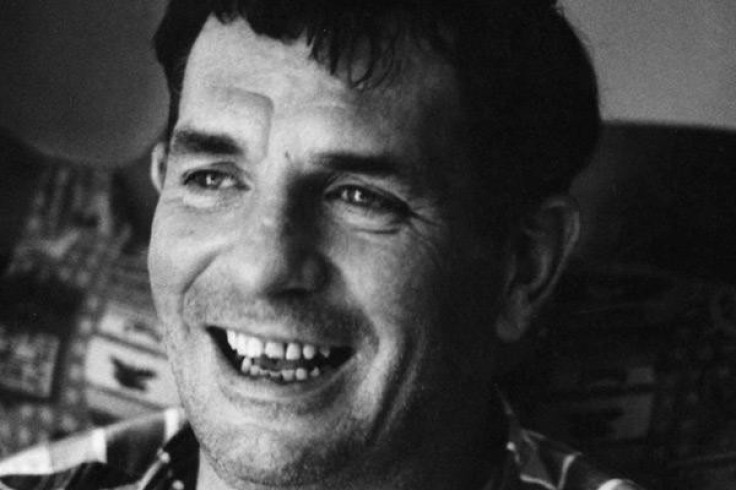Jack Kerouac: Did Football and Fighting Spell End of the Road for Hippie Godfather

Jack Kerouac is often described as the voice of the Beat Generation of American writers, but 44 years after his death, that moniker may have gained an uncomfortable new resonance.
For the author's death at 47 may have come not as a result of his chronic alcoholism, as was previously supposed, but due to the violent beatings and traumatic head injuries he sustained over a period of years.
Kerouac was previously thought to have died of gastrointestinal haemorrhaging brought on by week-long, round-the-clock drinking bouts.
But medical opinion now suggests he may in fact have suffered from chronic traumatic encephalopathy (CTE), brought on by the repeated concussions he suffered, from the American football matches of his youth to the bar room brawls of his later life.
The degenerative disease CTE has more recently been diagnosed in the brains of 50 players in the US National Football League, forcing the NFL to pay out £490m ($765m, €582m) in legal settlements with more than 4,500 retired players who claimed to suffer from symptoms including depression and dementia.
Gary Small, a psychiatrist at the University of California, Los Angeles, who has led efforts to diagnose CTE, told the New Yorker magazine that Kerouac had "multiple, significant concussions" on and off the football field, "and even probably multiple, sub-concussive injuries playing football". Others said his symptoms were remarkably similar to athletes diagnosed with CTE.
Robert Cantu, a neurosurgeon and co-director of Boston University's Center for the Study of Traumatic Encephalopathy, said Kerouac "had all of the symptoms of CTE".
Suspicions that Kerouac might have suffered from the disease were first raised by the noveist Joyce Johnson, a former girlfriend of the author.
In her book Minor Characters, she recalled an evening in 1958 when a bloodied Kerouac staggered into her home in Greenwhich Village, New York, having been brutally beaten in the street following an argument in a bar.
He said his attacker had repeatedly smashed his head into the curb. Johnson took him to hospital, but he was sent home by doctors who concluded he had suffered only superficial cuts and bruises.
However, less than a year later, Kerouac wrote in a letter to to his friend, the poet Allen Ginsberg, of his "recent belligerent drunkenness".
Kerouac wrote: "I just noticed today it all began last April right after that bum pounded my brain. Maybe I got brain damage, maybe once I was kind drunk, but now I am brain-clogged drunk with the kindness valve clogged by injury."
Kerouac is believed to have suffered repeated traumatic head injuries throughout his life, many of which he documented himself.
In his autobiographical novel Vanity of Duluoz, he recalls a violent tackle on the soccer field that left him consciousness, and writes of waking up asking himself: "What are we doing on this rainy field that tilts over in the earth, the earth is crooked, where am I? Who am I? What's all that?"
He was also involved in a serious car accident in his teens, his biographers note.
Kerouac enthusiast Rick Dale, author of The Beat Handbook, said: "It confirms my view that Jack was, in effect, murdered by those who threw him a beating outside a bar - not long before he died of gastrointestinal haemorrhaging."
© Copyright IBTimes 2024. All rights reserved.





